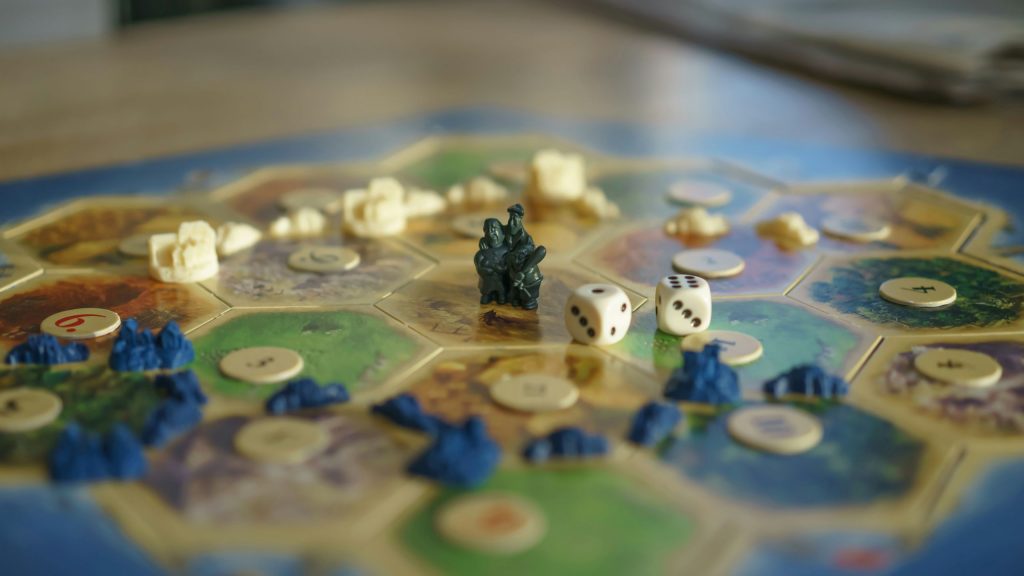Board games have been bringing people together for thousands of years. From carved stones in the sands of ancient Egypt to colorful cardboard boxes stacked on our shelves today, the love of gathering around a table to play is universal and timeless. Let’s take a walk through history and explore where our favorite pastime began—and how it evolved into the game nights we know today.
Ancient Beginnings: Games of the First Civilizations
The earliest known board games date back over 5,000 years. Archaeologists have found evidence of board-like game setups in Mesopotamia and Egypt, proving that our ancestors enjoyed a little friendly competition long before electricity or Wi-Fi.
- Senet (Egypt, c. 3100 BCE): Considered one of the oldest known board games, Senet was played on a 30-square grid and often buried with pharaohs as a companion for the afterlife. It was part entertainment, part spiritual ritual.
- The Royal Game of Ur (Mesopotamia, c. 2600 BCE): Discovered in the ruins of the ancient city of Ur, this race game used tetrahedral dice and had rules involving strategy and chance.
The Classical Era: Play and Philosophy
The Greeks and Romans weren’t just warriors and philosophers—they loved their games, too.
- Petteia and Latrunculi were strategy-based games similar to chess or checkers, focused on tactical movement.
- Roman soldiers played portable versions of these games while traveling, spreading them throughout Europe.
Games in this era weren’t just for fun—they were often used for teaching strategic thinking and military tactics.
The Middle Ages: Morals, Religion, and Recreation
During medieval times, board games became both more symbolic and more recreational.
- Chess emerged from the Indian game Chaturanga around the 6th century and spread through Persia and Europe, becoming a game of kings, knights, and intellectual prestige.
- Backgammon traces its roots to ancient Persia but gained huge popularity in medieval Europe.
- Religious authorities sometimes frowned on dice-based games, associating them with gambling, but abstract strategy games thrived.
The 18th & 19th Centuries: Games for the Home
The Industrial Revolution brought mass production, which meant board games could be made cheaply and sold widely.
- The Mansion of Happiness (1843), considered the first American board game, taught moral lessons based on the virtues of the time.
- In England, Snakes and Ladders became popular after being adapted from an Indian game called Moksha Patam, where the ladders represented virtues and snakes represented vices.
By the late 1800s, games had shifted from purely moral instruction to fun, family-centered entertainment.
The 20th Century: The Golden Age of Board Games
This era saw the birth of many of today’s classics.
- Monopoly (1935) turned real estate and economics into a competitive pastime.
- Scrabble (1938) brought wordplay to millions of households.
- Risk (1957) gave players a taste of global domination.
- The Game of Life, Clue, and countless others became staples in living rooms worldwide.
Board games also began reflecting pop culture, with tie-in games for movies, TV shows, and sports.
The Modern Renaissance: Eurogames and Beyond
Starting in the 1990s, a new wave of “Eurogames” from Germany—like Settlers of Catan—redefined board gaming with balanced mechanics, less player elimination, and more strategy.
This movement sparked today’s board game renaissance, where thousands of new titles are released each year, covering every theme imaginable—from farming to space exploration.
Crowdfunding platforms like Kickstarter have made it easier for independent designers to bring creative ideas to life, and communities have formed worldwide to share in the hobby.
The Future of Board Games
With technology advancing, hybrid games that use apps or augmented reality are emerging. But one thing remains constant: board games are about connection. Whether it’s friends huddled around a kitchen table, families laughing over dice rolls, or strangers bonding over a shared strategy, the core appeal hasn’t changed in thousands of years.
Final Roll of the Dice
From carved stones to complex strategies, the history of board games is a story of human creativity and our desire to play together. So, the next time you sit down for game night, remember—you’re taking part in a tradition as old as civilization itself.

